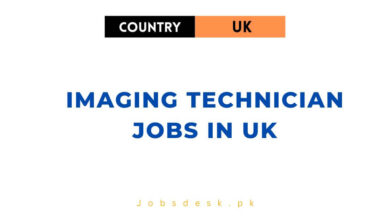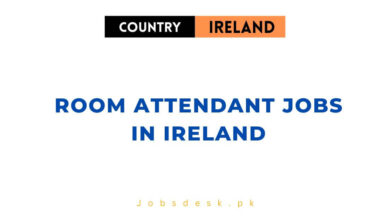Visa Sponsorship Health Care Worker Jobs in UK – Apply Now

Healthcare professionals are in significant demand due to the dynamic nature of the labor market in the United Kingdom. The United Kingdom is committed to augmenting its workforce with a greater quantity of adequately trained health and care workers.
This essay explores the enticing opportunities presented by UK visa sponsorship jobs that are tailored to the needs of healthcare professionals. The complexities associated with obtaining a Health and Care Worker Visa for the United Kingdom are elaborated upon in the following guide. This article provides comprehensive guidance on how to establish a prosperous healthcare profession in the United Kingdom, including an analysis of the visa application process, qualifying qualifications, and the wide range of permissible occupations.
Details About Visa Sponsorship Health Care Worker Jobs in UK:
- Location: UK
- Offered Salary: £11.05 – £12.06 / hour
- Experience: 2 Year
- Gender: Both
- Qualification: Associate Degree
- Career Level: Executive
Benefits of Visa Sponsorship Health Care Worker Jobs in UK:
- Job Stability: The healthcare sector generally provides healthcare professionals with secure employment opportunities as a result of the ongoing demand for medical services.
- Diverse Career Options: Healthcare provides an extensive array of career trajectories, encompassing allied health, medical technology, administration, research, and more. This diversity enables individuals to delve into a multitude of specializations and assume a variety of positions.
- Impactful Work: Healthcare professionals exert a direct influence on the well-being of patients through the provision of critical medical attention, assistance, and solace throughout periods of ailment or trauma.
- A Rewarding Experience: Assisting patients in their recovery, enhancing their health, and delivering empathetic care can engender profound satisfaction and instill a sense of purpose in one’s professional endeavors.
- Ongoing Learning and Professional Development: The healthcare industry is a dynamic sector that perpetually progresses with the introduction of novel treatments, technologies, and discoveries, thereby presenting prospects for continuous learning.
- Emotional Intelligence: Healthcare professionals cultivate emotional intelligence, empathy, and strong interpersonal abilities through their engagements with patients, families, and colleagues. These competencies hold significant practical value across multiple domains.
- Community Contribution: Healthcare professionals make significant contributions to their communities through their advocacy for public health awareness, support for preventive care, and overall societal well-being.
- Global Opportunities: The demand for healthcare professionals’ expertise extends across the globe, presenting prospects for healthcare practitioners to engage in cross-border employment or contribute to global health endeavors.
- Competitive Compensation: Benefits and salaries in the healthcare industry are frequently competitive, including retirement plans, healthcare coverage, and other advantages.
- Team Collaboration: Healthcare work necessitates collaboration with multidisciplinary groups, which cultivates abilities in cooperation, communication, and coordination.
Check Also: Visa Sponsorship Mental Health Practitioner Jobs in UK 2024
List of Visa Sponsorship Health Care Worker Jobs in UK:
Physiotherapists (2221)
Admission requirements include a physiotherapy registration with the Health and Care Professions Council (HCPC) and a bachelor’s or master’s degree in the field.
Occupational Therapists (2222)
Admission requirements include an occupational therapy degree and registration with the Health and Care Professions Council (HCPC).
Speech and Language Therapists (2223).
Admission requires a degree in speech and language therapy that has been officially recognized, in addition to registration with the Health and Care Professions Council (HCPC).
Therapy Professionals Who Are ‘Not Elsewhere Classified,’ Such as osteopaths and psychotherapists. (2229)
Requirements for entry differ by occupation. Osteopaths are typically mandated to possess a degree in osteopathy in addition to the requisite registration. For psychotherapists, a degree and accreditation from an accredited body may be necessary.
Nurses (2231)
While nursing credentials can differ, a minimum of a bachelor’s degree in nursing is required, and all nurses are registered with the Nursing and Midwifery Council (NMC).
Midwives (2232)
To practice, midwives are required to possess a midwifery degree and be duly registered with the Nursing and Midwifery Council (NMC).
Social Workers (2442)
Frequently, admissions requirements include a social work bachelor’s or master’s degree, in addition to registration with the relevant social work regulatory authority.
Laboratory Technicians (3111)
Potential entry prerequisites include GCSEs/S grades or A-levels/HNDs in relevant subjects. Laboratory technicians have the option to further their education while employed.
Paramedics (3213).
Frequently, entry-level paramedic positions require a degree in paramedicine or a closely related field. Registration with the Health and Care Professions Council (HCPC) is an absolute requirement.
Dispensing Opticians (3216)
Typically, dispensing opticians are mandated to possess a Level 6 qualification in optometry in addition to General Optical Council (GOC) registration.
Pharmaceutical Technicians (3217).
While entry criteria may differ, certification by the General Pharmaceutical Council (GPhC) and appropriate credentials are often mandatory.
Medical and Dental Technicians (3218)
While entry criteria may differ depending on the position, essential credentials and frequent membership in the appropriate professional organization are mandatory.
Health Associate Professionals Not Classified Elsewhere. (3219)
Entry requirements: Entry requirements for this category vary by profession. Registrations and credentials are necessary for the specific function at hand.
Nursing Auxiliaries and Assistants (6141)
GCSE/S grades or occupational certificates are frequently recognized as entry requirements. It may be necessary to complete relevant healthcare courses and on-the-job training.
Dental Nurses (6143)
Dental nurses often require a certification in dental nursing, which can be earned via certified courses or practical experience.
Home Carers and Care Workers(6145)
Entry Requirements: Although it is generally possible to gain entry with minimal formal qualifications, appropriate training and experience in the care industry are preferred.
Senior Care Workers (6146)
Senior care professionals often require prior experience in caregiving and may also be expected to possess supervisory or management abilities.
Dental Practitioners (2215)
Typically, a dental degree is required of dental practitioners, including dentists and oral surgeons: a Bachelor of Dental Surgery (BDS) or its equivalent. Legal practice in the United Kingdom additionally requires registration with the General Dental Council (GDC).
Organisations Authorised to Sponsor Workers:
- PhysioUK Ltd.
- 1 Stop Printing Ltd.
- 10 Europe Limited
- 100 SHAPES LIMITED
- 1000 Heads Limited
- 100 Starlings Inc.
- 101 A+D Ltd.
- Zorba Delicacies Ltd
- Zorba Group Ltd.
- ZORBA TAKEAWAY
- ZOT Engineering
- Youth With A Mission (Northern Ireland) Ltd
- Youth With A Mission Harpenden Ltd
To access the Register of Licenced Sponsors for Workers, kindly navigate to the subsequent hyperlink: Register of Licenced Sponsors for Workers.
Tier 2 Sponsors in the Health and Care Sectors in the United Kingdom:
For a comprehensive list of Tier 2 employers in the healthcare industry, listed by location and sector, please visit the official Tier Sponsors page by clicking here.
Additionally, you may inquire directly with these businesses regarding any open or existing positions and whether or not they are prepared to sponsor your employment requirements.
Frequently Asked Questions:
-
Are healthcare workers needed in the UK?
The global healthcare shortage is evidenced nowhere better than in the UK, where a recent survey determined that a staggering 80 percent of NHS workers are concerned about the impact of understaffing on patient safety and care.
-
How much is a health worker paid in the UK?
The average salary for healthcare workers is £29,163 per year in the United Kingdom. The average additional cash compensation for a healthcare worker in the United Kingdom is £4,196, with a range from £1,304 to £13,501.
-
How do I become a healthcare worker in the UK?
There are no set entry requirements to become a healthcare assistant. Employers expect good literacy and numeracy and may ask for GCSEs (or equivalent) in English and math. They may ask for a healthcare qualification, such as a BTEC or NVQ. Employers expect you to have some experience in healthcare or care work.



